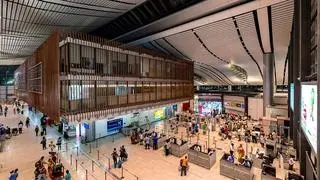Indian Private Ports & Terminals Association has sought a meaningful Cabotage relaxation by applying it unconditionally in all the container handling ports at least for a period of five years.
IPPTA believes that the conditions imposed on availing Cabotage relaxations are so stringent and unrealistic that none of the existing ports/terminals/new ports will be in a position to meet them.
The entire move will be a non-starter and will go against the government’s objective to attract transhipment cargoes from foreign ports, the Association said in a letter to the Joint Secretary (Shipping).
Even after Cabotage is relaxed, terminals cannot expect that foreign going vessels will immediately start using the relaxation on a large scale. Many factors like container volumes, draft restrictions, facilities available at the Indian transhipment hubs vis-à-vis those at nearby foreign transhipment hubs, regulatory issues etc will determine the deployment of foreign going vessels for moving transhipment containers across the Indian coast, the letter said.
Emphasising the need for allowing sufficient time for the success of the Cabotage relaxation policy, IPPTA suggested that there should be no stipulation on the quantum of transhipment to be handled by a port in the first five years.
On the conditions that new ports should achieve the stipulated transhipment traffic of at least 50 per cent in the second year, the Association said:“it is tall order for a new port as it takes time to establish itself as a transhipment hub”. Ashok Kumar Bhattacharjee, Secretary General, IPPTA, told BusinessLine that the contents in the Ministry’s policy guidelines did not address the need of the hour and added insurmountable restrictions making the entire adventure uneventful. If the Ministry wanted to make India a transshipment hub, it should take reasonable and realistic steps.
On the 100 per cent radiological scanning of containers passing through ports, the letter pointed out that none of the global transshipment hubs undertake such activity. Internationally scanning is always done on a sampling basis and based on intelligence inputs. It is not feasible without severely compromising transshipment operations, congesting the terminals and making ports infeasible.
Likewise on the requirement of taking security clearance for crew and equipments in foreign flag vessels, from both the Ministry of Defence and Home Affairs, IPPTA said that getting special clearance from different ministries will add as a disincentive to put any vessels on the Indian coast.








Comments
Comments have to be in English, and in full sentences. They cannot be abusive or personal. Please abide by our community guidelines for posting your comments.
We have migrated to a new commenting platform. If you are already a registered user of TheHindu Businessline and logged in, you may continue to engage with our articles. If you do not have an account please register and login to post comments. Users can access their older comments by logging into their accounts on Vuukle.